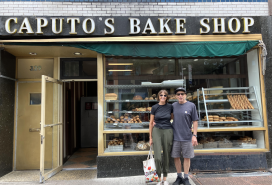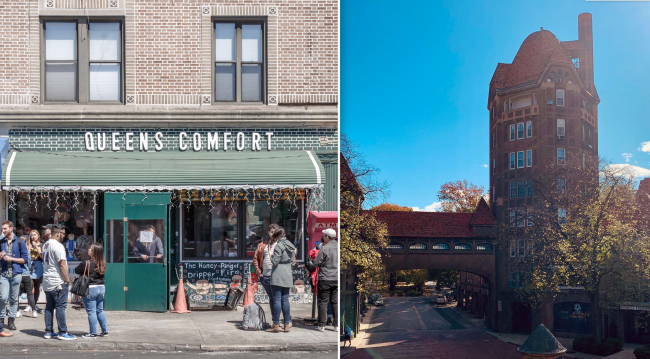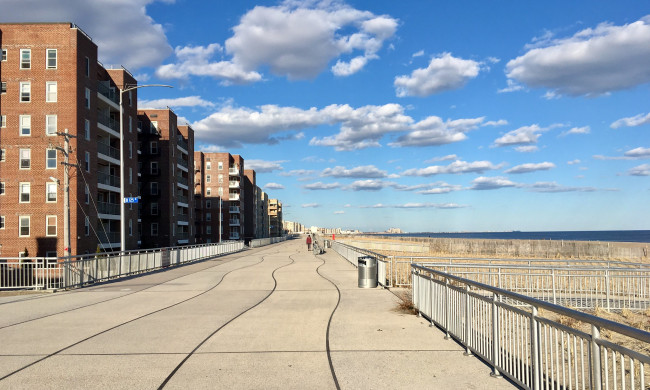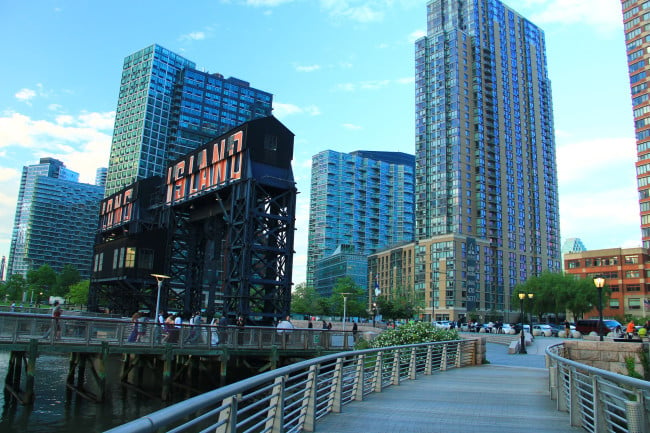I lived above an 80 year old who had a barbershop in his apartment. His death felt like the end of old Astoria
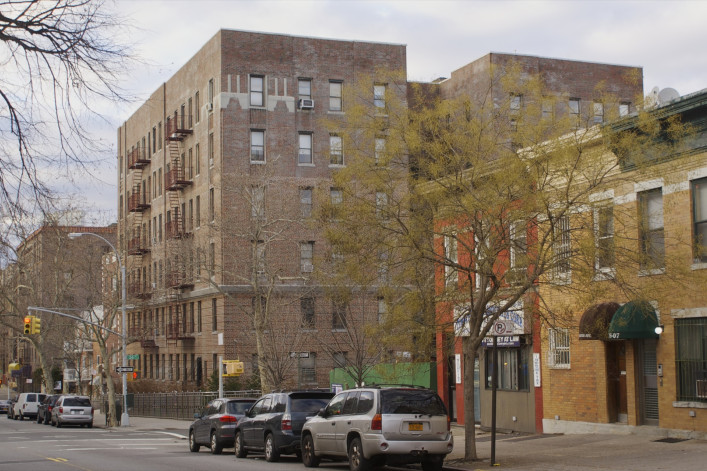
The regulars would come to the off-the-books barbershop in the afternoons just to chat and smoke. They'd sit by a table near the front window, facing Ditmars, commenting on passersby.
Helly Schtevie was thrilled to score an affordable Astoria apartment—with great roommates to boot. But the building came with something unusual: The landlord had a single-chair barbershop in his second-floor apartment. The off-the-books shop attracted a troop of regulars—senior citizens and others—who would hang out, smoke cigars, and make the occasional wolf whistle through the always-open door. The octogenarian barber eventually charmed her, so much so that his passing felt like the end of the old neighborhood. Here’s Helly’s story.
I moved to New York City from the D.C area. After my first apartment, in Bushwick, was burglarized twice, I decided the place had bad mojo (even though my roommates and I bear some responsibility for not closing the back window, twice). So in 2011, I set my sights on Astoria, Queens.
I was just making ends meet at the time, so affordability was key—so was not having to sign a lease. I wanted to keep things as flexible as possible. In addition to my cold feet, I was a tad bit under employed at the time and knew I could not strike out on my own, so moving into a situation that was already set up was ideal.
[Editor's Note: Brick Underground's series “Living Next to” features first-person accounts of what it’s like to have an iconic or unusual New York City neighbor. Have a story to share? Drop us an email. We respect all requests for anonymity.]
On Craigslist, I found a very large room in a three-bedroom apartment just three blocks from the Ditmars Boulevard station, on a street full of bars and restaurants. My share of the $2,000 per month apartment was $750, and I was ecstatic that I wouldn't need to compromise on location or space to save on rent.
My roommates turned out to be two very nice women my age, who are now two of my best friends in the world. They had lived in the apartment for five years, so they knew the lay of the land.
I was told our landlord was a nice, elderly man who I wouldn't hear or see much of beyond collecting the rent. It was not until I moved in that I realized that "Steve," as we were told to call him (his legal name was actually "Stergios," and that what his friends called him) lived directly below us.
It turns out this Greek octogenarian had a head for business. He not only collected rent from us, "the girls," as he referred to us collectively, and from a store on the ground floor that sold necessities like batteries, paper goods, and basic tools, he was a full-time barber, operating a one-chair shop out of the front living room of his apartment on the second floor.
I wondered how his customers found him. There was no sign anywhere on the street that indicated there was a barbershop upstairs. It became evident it was a completely word-of-mouth (and very inexpensive) deal. Most of his customers were old friends, or friends of friends, men he'd known for decades in Queens, where he had lived since he was a young man, some possibly even from Greece. Others seemed unconnected personally and were just looking for a reliable haircut and must have caught wind of the $5 prices.
I found it all very quaint and charming! I thought, “OMG! Is this real?” I loved it from the beginning. Steve kept the shop tidy enough—he swept all the time—and there were no obnoxious odors, even though his regulars would come in the afternoon to puff on cigars.
They would come in the afternoons just to chat and smoke. They'd sit by a table near the front window, facing Ditmars, commenting on passersby. They all knew us tenants by face, not name. I figured out that Steve had invented his own names for us that were based on our real names.
There was a language barrier, but it wasn’t hard to figure out the old men were making comments about our bodies. There were lots of wolf whistling and “compliments,” like, “You have a beautiful body.” I wasn’t offended by any of this because these were very old-school types. They weren’t keeping up with the Zeitgeist in any manner—certainly not where gender relations were concerned. I suspect they sincerely thought this was how you compliment someone. I never felt unsafe, and they always kept their physical distance. Besides, they all moved too slowly for there to be any actual risk.
As for getting my own hair cut there, it never occurred to me to go to him, because he usually only cut men's hair. However, a female Greek friend once asked him to shave the back of her neck. His eyes lit up when she spoke Greek with him. They talked about the islands they hailed from and he refused to take money from her.
I lived in the apartment for five years, and over that time, I saw Steve decline, becoming frailer, even though he continued to work, standing on his feet all day. He always charged his loyal customers just $5 a cut. I wondered why none of them told him he was under-charging them. I wondered when (if ever) he had raised his prices.
Steve's English was not very fluent, and my Greek was non-existent, so communicating with him was difficult. I did try to ask him why he charged so little, and he led me to a drawer, which he stooped to open. It was brimming with ancient-looking ledgers where he'd been keeping his accounts by hand. He gestured to the yellowing paperwork, as if that would clarify things for me. I shrugged. He pointed to the sky and said, "I am going there soon." I didn't ask him about that again.
Steve's apartment door was always open, and he was a tremendous busybody, always asking where I was coming from, where I was going. There were times when I slept at a boyfriend's and came home early in the morning wearing yesterday's clothes. He was always warning me to be careful. I wondered if he had scandalous theories about how I was paying for my rent.
Eventually Steve's body and mind declined further. He was forgetting things. Misplacing our rent—which he collected in cash. Forgetting to eat. His hands shook, but they were always steady while he was cutting hair and shaving people's throats, which he did until the very end. Ultimately, his family moved him to a nursing home. He had lived alone in the unit, and after he was relocated the apartment sat vacant. Several months later, I learned from the first-floor shopkeeper that Steve had passed away. No word from his family, who continued to collect our rent. It was all very cold and transactional.
In 2015, I moved in with my boyfriend. My roommates, my replacement, and the shopkeeper were kicked out a year later. The first-floor store now sells acai bowls. I heard they renovated the hell out of the apartments and they’re luxury spaces now.
That was the last gasp of old Astoria. I am glad I was able to live it.
You Might Also Like




